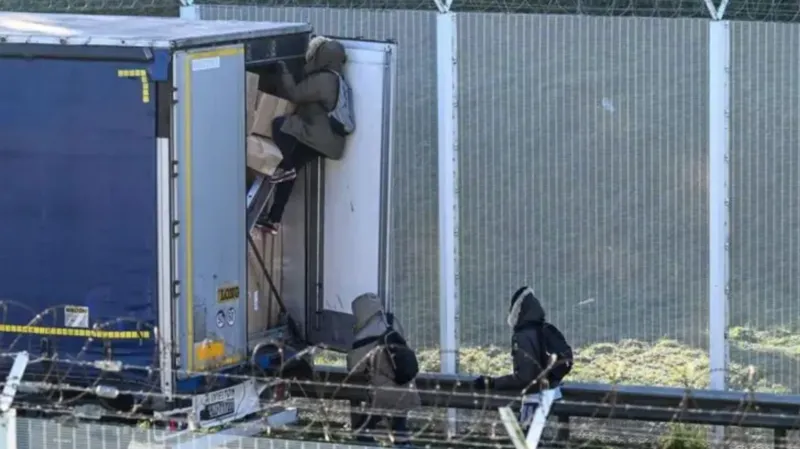Nearly 6,000 attempts were made by migrants to hide in vehicles at Channel ports and cross into the UK last year, new BBC data has revealed. The figures, obtained by BBC South East, show a significant increase from 2023, with 5,874 detections compared to 4,794 the year before. These incidents happened at ports in Calais, Dunkirk, and the Channel Tunnel at Coquelles, all major exit points for migrants trying to reach the UK.
Despite a shift in focus towards small boat crossings since 2018, the threat of clandestine entry in lorries and other vehicles remains high. The Independent Chief Inspector of Borders and Immigration warned that smuggling gangs closely monitor UK border operations, looking for any weaknesses to exploit. The report described the situation as an “unrelenting threat,” with Border Force resources already stretched thin.
In one recent case, smugglers were jailed after trying to bring five Vietnamese migrants into the UK under piles of rubbish in a van. The van was stopped and searched at the Eurotunnel terminal in Coquelles, and the hidden individuals were found among motorbike parts and trash. This highlights how dangerous and inhumane the journeys can be for migrants seeking entry into the UK.
The government has introduced stricter penalties to deter smuggling. Under new rules set in 2023, lorry drivers caught with illegal migrants can face fines up to £10,000 per person. BBC investigations showed that Border Force issued 1,787 such fines in the 2024–25 period. Over the past decade, civil penalties for drivers have exceeded £60 million.
Not only freight drivers are affected. Tourists have also been fined after unknowingly transporting migrants. A Kent couple had their £3,000 fine reversed after discovering two Sudanese men hiding in their campervan. Similarly, a couple from Essex were fined £1,500 after a migrant was found zipped into a bike rack cover on their motorhome. That fine was later overturned too.
Border Force and French authorities work together at Channel ports to conduct multiple checks before vehicles reach UK control zones. They use tools like CO₂ probes, sniffer dogs, and scanners to detect hidden individuals. Tony Smith, a former head of UK Border Force, stressed the importance of these “juxtaposed controls” in France. Without them, he said, far more migrants would likely succeed in crossing undetected.
The Home Office said that the new Border Security, Asylum and Immigration Bill would give authorities better tools to deal with the threat. These include enhanced cooperation with the DVLA to flag suspicious vehicles entering the country.
Why are migrants still attempting to hide in lorries despite increased fines and security?
Despite tougher penalties and improved detection methods, many migrants still see hiding in lorries as one of the only ways to enter the UK, often relying on smugglers who take advantage of gaps in security.

